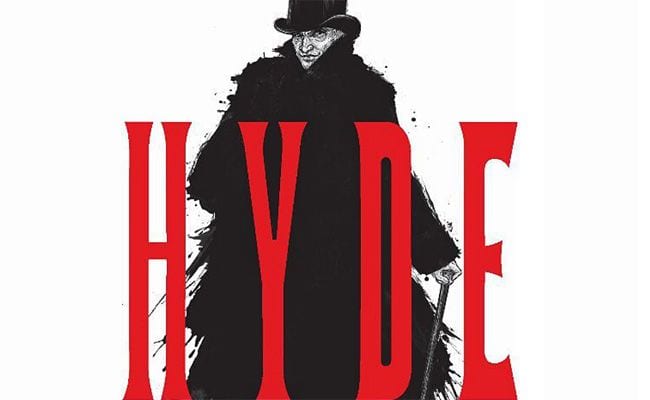
When Robert Louis Stevenson’s The Strange Case of Dr. Jekyll and Mr. Hyde was first published in 1886 it became an instant sensation, eventually selling over a quarter of a million copies in less than two decades and inspiring countless adaptations (stage versions began happening almost immediately after its publication). More than that, the concept of a man split, and eventually destroyed, by the darker side of his personality has become a staple of fiction, to the point where “Mr. Hyde” is synonymous with anything that reduces us to our most basic, animalistic needs.
One of the elements that has always made Stevenson’s novella so remarkable is the legend behind its inception, since it is said it came to him a dream, followed by a cocaine-fueled writing spree that would lead him to write the book in less than a week. It was as if he, too, had been possessed by a superhuman creature. This seems to have inspired Daniel Levine to write his own version of the story and in his debut novel Hyde, he tells the same story from the perspective of the monster.
“It is tempting to speculate that Stevenson’s impressive corpus of witty, elegant prose would be all but unknown to most modern readers if not for that dream” he writes in the introduction, before he elaborates on how he wishes he could emulate this process of intervention, divine or otherwise. No doubt aware that he was about to take on a beast of world literature, Levine’s smartest move may have been to include Stevenson’s original telling, as if to establish that he is aware that he might never be able to pay real justice to the classic, but he will try his twist on the tale, nevertheless.
Levine’s Hyde, not only turns out to be a worthy tribute, it’s also a fantastic work of literature on its own. “My interest was not to reconfigure the premise but in returning to the original, exploring the inconsistencies of character and crafting a convincing psychological model to explain Jekyll’s plunge into self-annihilation,” he explains. It makes sense, given that in his version, the creature, while not exactly being angelical, is finally given the opportunity to show that even within darkness there must be something resembling reason. The monster of Hyde might not be a pacifist, but he is just as torn as his creator.
Levine’s Hyde, isn’t as terrifying as Stevenson’s, because it makes us realize that once we try to empathize with others, even the most perverse actions can start to appear almost logical, or at least subjective from moral and ethical perspectives. The creature sums it up, “perhaps the human mind is something more than simply the workings of the brain, of over-adapted muscle matter” before continuing, “perhaps it is part of something else, some larger, universal consciousness to which we are all connected. We are all one fluid mind, and have only to realize it… I suppose I am trying to believe in that”.
To call Hyde heart breaking would seem strange, yet this is what Stevenson’s version lacked. The author seemed to be possessed by the foggy England of his days, a place of corruption and decay, that was slowly giving way to the industrial revolution and could therefore only suggest the evils that lurked behind change. Now, able to look back at the full century that has passed since the book was published, Levine allows himself to see past the police procedural and into the soul of someone who was first thought of as completely soulless.
The tone of Hyde is especially remarkable because Levine chooses to emulate Victorian English, displaying — showing off, even — his skills and ability to come up with prose that’s stylized without being too precious. Hyde doesn’t necessarily feel as if it was written during the late 1800s, because the sensibilities are different, but it feels as if it’s what Stevenson would have decided to write if he were alive in the early 21st century. Hyde is a worthy addition to the psychological horror genre. Levine has succeeded in finding something unique in what we thought was already very familiar.


![Call for Papers: All Things Reconsidered [MUSIC] May-August 2024](https://www.popmatters.com/wp-content/uploads/2024/04/all-things-reconsidered-call-music-may-2024-720x380.jpg)



